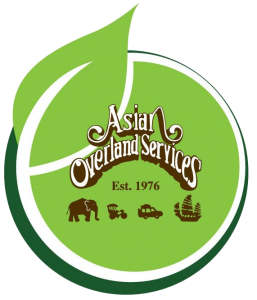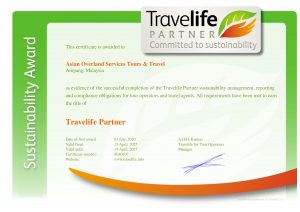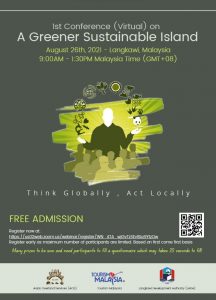Think globally, Act locally…
Act Responsible, think sustainable. Sometimes less really is more!
Sustainability Perspective
Sustainability Tips
Last Update: Apr 15, 2021
General Tips For Your Holidays
- Be considerate of the communities and environment you visit.
- Do not litter.
- Carry your own shopping bag to avoid contributing to the plastic problem in many countries of the world.
- Lose the straw and if you want one, bring your own reusable one.
- Educate yourself about the place you are visiting and the people.
- Respect cultural differences and learn from it! People in different places do things differently.
- Dress respectively. Cover up away from the beach. Cover your head in religious places. Notice local dress codes and adhere to them.
- Do not purchase or eat endangered species (e.g., turtle egg soup, crocodile handbags).
- Support the local economy. Buy locally made souvenirs, eat at local restaurants – enjoy the local culture!
- Do not support the illegal drug trade or the sex trade. Recognize the signs of human trafficking.
- Take public transit. Use a bicycle. Or if you must rent a car, why not a hybrid or electric one if available?
- Support a local charity or organizations that works towards responsible tourism – if you are not sure – ask around, it is a great way to start a conversation.
Souvenirs to avoid
The clients are reminded to avoid purchasing illegal souvenirs (such as all souvenirs made from animal parts) or it is not recommended to bring non-biodegradable souvenirs for native people. Such as:
Teak (decoration, masks, etc.)
The Teak tree comes from Southeast Asia and its wood has an intense golden-brown color. Teak is known worldwide for its durability and water resistance. Many markets offer teak handicraft such as masks, panel-work or carvings. However, buying these products is not recommended. Even some of the quality seals are questionable. The wood comes mostly from tropical rain forests, one of the most valuable and species-rich habitats of the world, which are thereby being destroyed.
Corals (jewellery, decoration, etc.)
In the last 30 years, the global population of all corals has decreased by about 40%. The main reasons for this being the increase in water temperature due to climate change, the ever-increasing marine pollution and the overfishing of reef fish.
Animal products (jewellery, decoration, etc.)
The purchase of all souvenirs made from the hides, teeth, amour, etc. of animals such as tigers, elephants, turtles, butterflies, seahorses and other marine life such as shellfish should be avoided. Buying these products encourages poaching. In addition, it is not uncommon for animals to be mistreated before and during their death.
Crocodile and Snakeskin (belts, boots and shoes, decoration etc.)
The hides and skins of protected animals, such as crocodiles or snakes, are used in processed form as decorative elements or are transformed into other everyday items (bags, belts, shoes). These animals are often savagely hunted and mistreated. Hides and skins are also subject to species protection rules.
Turtles (soap and cream products, eggs, tortoiseshell, medicines etc.)
250,000 sea turtles end up as a by-catch as a result of excessive fishing every year. Increasing marine pollution is also destroying their habitats and breeding grounds. A total of seven species of sea turtles are right now endangered. The trade with sea turtle products is therefore prohibited worldwide.
Butterflies (stuffed animals, wings, etc.)
Some of the species of butterflies are offered as souvenirs. The main reasons are their distinctive pattern and colour gradients.
Visiting Local Communities
Buying souvenirs from Orang Asli
The clients are encouraged to Buy locally made handicrafts. Basically, during visiting the local communities, it is a great way to find unique souvenirs and therefore support local craftspeople and traditions.
Gifts for Orang Asli
We do encourage bringing simple gifts when visiting the native settlement, a normal Asian custom. However, we do recommend items such as exercise books, pencil, rice or biscuits. Sweets and snacks especially in non-biodegradable plastics are not encouraged.
Visiting Religious Places
The clients are reminded to follow the wear the dress appropriately during visiting religious places such as mosques and temples.
Muslim mosques
- Take off your shoes, hats and sunglasses. There will usually be a rack for shoes outside of the entrance to the mosque. In addition to removing your shoes, take off your hat and sunglasses.
- Cover your head and hair. Bring a scarf or shawl, which you can use to cover your head upon entering a mosque.
- Pay attention to signs at the entrance. Some mosques will have separate designated entrances for men and for women. If you miss the sign but notice that men and women are gathering on different sides, enter accordingly.
- Don’t take pictures during prayer. Tourists are generally allowed to use cameras inside mosques, but they should refrain from doing so during prayer times.
Buddhist temples
- Take off your shoes and hats before entering. There will almost always be a sign outside of the temple pointing visitors to the designated area for shoes and hats. The many pairs of visitors’ shoes clumped together will tip you off.
- Cover your shoulders. Since it gets very hot in Asian countries during the summer, many tourists forget to cover their shoulders and legs before entering places of worship. One way to plan is to dress in layers and bring a scarf or shawl along, no matter where you go. When visiting temples, capri pants and long skirts are preferable to shorts, although men can sometimes get away with wearing long shorts.
- Ask permission before taking pictures. Make sure it is okay to use your camera, especially when taking photographs inside a temple with statues. If you do take pictures, it is always nice to leave a donation.
- Do not touch Buddha statues. Remind your kids before entering not to touch or climb on top of the Buddha statues.
- Do not touch Buddhist monks, especially if you are female. Women are not supposed to hand items to monks, either. Men who need to hand something to a monk, or take something from a monk, should try to use their right hands.
Hindu temples
- Take off your shoes before entering. There will almost always be a sign outside of the temple pointing visitors to the designated area for shoes. The many pairs of visitors’ shoes clumped together will tip you off.
- Cover your shoulders and legs. Bring a shawl or sweater and try to wear long pants or long skirts. Wearing tank tops or shorts in a Hindu temple is seen as disrespectful.
- Ask permission before taking pictures. Make sure it is okay to use your camera, especially when taking photographs inside the temple of statues or images of Hindu deities. If you do take pictures, it is always nice to leave a donation.
- Use your right hand. When handing a donation (or anything else) to a person, use your right hand.
- Try not to wear leather inside. While this is not a steadfast rule, it is polite to remove leather shoes, belts, jackets, et cetera upon entering a Hindu temple.
Christian churches
- Cover your shoulders and knees. It is polite to avoid wearing a sleeveless top or short. Bring a sweater or shawl to cover up, and wear knee-length pants and skirts.
Sustainability Policy
Last Updated: Mar 5th, 2025
We aim to be a leader advocating sustainability practices in the industries where we are involved. We will constantly rethink and realign our behavior, innovation and technology in a sustainable manner for our environment and our businesses. We will seek to influence others to follow us. By infusing our strong beliefs in being culturally, socially and environmentally conscious, we will offer unique experiences, incorporating sustainable elements to our clients.
1. Overview
Asian Overland Services Tours and Travel Sdn. Bhd. (AOS), is committed to running our business sustainably. We care about the impact we make on the environment, economy and social culture framework in the destinations we operate and promote. We aspire to increase and share our knowledge on sustainability through training. Our actions will respect the environment, the biodiversity and habitat through green practices such as recycle and reuse. We aim to support and elevate standards of living of the local communities by promoting local products, culture & traditions. We will influence our partners to do the same through knowledge sharing.
2. Objective of Policy
The objective of this policy is to provide the framework for expressing Asian Overland Service’s commitment to the incorporation of sustainability principles and practices in the way we run the business.
3. Scope of Policy
This policy will apply to all activities of our organization. Our employees and contractors are expected to uphold objectives under this policy on an optimal basis subject to practical and budgetary considerations. Though we are not in the position to make decisions of third parties that we work with, we commit to educate them of our policy and encourage them to align their operating practices with our policy objectives. Our attention to environmental, culture, social and economic responsibility includes working within the law and voluntarily exceeding legal requirements in order to be innovative and demonstrate leadership on the issues that are important to our stakeholders and us.
4. Principles
Green Choice

We are committed to protect the environment and conserve biodiversity through sustainable activities. Sustaining the environment and biodiversity is a prime consideration in all aspects and stages of our operations.
As a sustainable Company, we are also committed to choose, support and recommend the services, accommodations and suppliers who care about the society and environment.
We are also committed to create innovative approaches to minimize negative environmental impacts, improve economic bottom lines and integrate social elements in our products.
AOS Green Choices are the products (includes accommodations, daily tours and packages) that meet our standards in accordance to AOS Sustainability Policy.
Accommodations
try to reduce to the minimum the consumption of natural resources, the expense of energy or the emissions and they take special care of the waste treatment so their environmental impact is as low as possible.
Daily Tours
To empower and enable travelers as well as local communities to leave a positive cultural, social, economic and environmental impacts on the surrounding environments in which they visit, or live.
Tour Packages
Traveling without harming natural and cultural environments and minimise the negative impacts of tourism and ideally be beneficial to the area in which it takes place.
Greener Sustainable Islands
A Greener Sustainable Langkawi – 2021
There is a need to educate all communities in Langkawi to be sustainable. Environmental sustainability is the responsibility to conserve natural resources and protect ecosystems to support the health and wellbeing of the whole ecosystem. Sustainability is a psychological phenomenon too.
In Langkawi, we have experienced the long-term consequences of exponential industrial growth,water and energy use. We must act to reverse these effects and prevent further damage, to ensure we have a healthy planet to live for generations to come.
For businesses, it means committing to environmentally sustainable practices to help build our thriving communities and secure future growth potential.
In this online conference, we have many local champions sharing their story in their journeys to make Langkawi Greener and more Sustainable.

